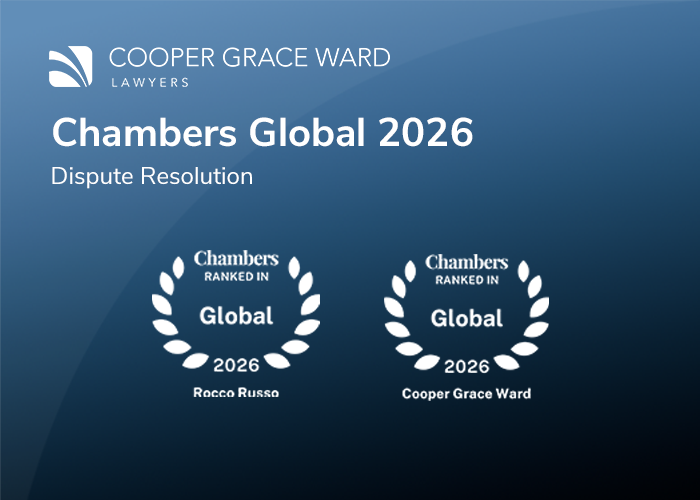A Supreme Court in Australia has dismissed an application by a UK company’s moratorium restructuring practitioners for recognition of a UK moratorium and ordered that the company be wound up under Australian law.
The decision provides insights into the interaction between cross-border insolvencies and the winding up in Australia of foreign companies under Australian law.
Introduction
In the matter of Hydrodec Group Plc [2021] NSWSC 755, delivered 24 June 2021, the New South Wales Supreme Court:
- ordered that a public company incorporated in the United Kingdom be wound up in insolvency under Australian law
- dismissed an application by the company’s UK-appointed moratorium restructuring practitioners, known as ‘monitors’, for recognition of an insolvency moratorium in the UK and a stay of the Australian winding up proceedings.
Factual background
Hydrodec Group Plc (in liquidation) is a public company incorporated in the UK and registered to carry on business in Australia under the Corporations Act 2001 (Cth) (CA). It is the parent company for a corporate group comprised of:
- subsidiaries located in the UK, Australia and Japan that were not trading
- a sole trading subsidiary located in the United States of America, which owns valuable assets.
Hydrodec’s principal asset was its indirect ownership of the USA subsidiary. The monitors argued that this asset was in the UK, as that was the location of the shares held by Hydrodec in an intermediate holding company.
In February 2021, Hydrodec was ordered to pay a sum in excess of $1.6 million to an Australian entity (Claimant).
The Claimant subsequently served on Hydrodec a demand for payment under section 585 of the CA. Hydrodec did not comply with the demand and the Claimant commenced winding up proceedings under the provisions of the CA.
After the commencement of the winding up proceedings in Australia, Hydrodec commenced a ‘moratorium’ in the UK under the provisions of the Insolvency Act 1986 (UK) (UK Act) and appointed monitors to Hydrodec. A moratorium under the UK Act is akin to a ‘debtor-in-possession’ restructuring regime where the directors retain authority, much like the simplified debt restructuring under the CA. Broadly, it involves:
- restructuring practitioners being appointed as monitors to supervise the affairs of a company that is, or may soon become, insolvent, with the goal of rescuing the company as a going concern
- restrictions on the enforcement of certain pre-moratorium debts and the company’s dealings more generally.
Following their appointment, the monitors applied to the Supreme Court of New South Wales for:
- recognition of the UK moratorium under the Model Law on Cross-Border Insolvency of the United Nations Commission on International Trade Law
- a stay of the winding up proceedings.
The Court’s decision
The primary issues for the Court were:
- First, whether the UK moratorium was a ‘foreign main proceeding’ under the Model Law. If it was, then, subject to very limited exceptions, Hydrodec would have been entitled to recognition of the moratorium and a stay of the winding up proceedings.
- Second, if the UK moratorium was not a foreign main proceeding, whether Hydrodec should be wound up in insolvency under the CA.
Issue 1 – foreign main proceeding
To establish that the UK moratorium was a foreign main proceeding, Hydrodec needed to show that its ‘centre of main interests’ (COMI) was in the UK (i.e. the location of the moratorium).
Hydrodec argued that its registered office was in the UK, and it could be presumed under Article 16 of the Model Law that its COMI was in the UK.
Hydrodec also contended that its COMI was in the UK because, among other things:
- it has an address in the UK
- its affairs are administered in the UK by directors that reside in the UK
- its main asset was its shareholding in a subsidiary, in the UK
- the majority of its creditors are in the UK.
The Court rejected these arguments.
The Court found that, as Hydrodec had a registered office both in the UK and in Australia, the presumption as to COMI under Article 16 of the Model Law did not apply.
The Court then found that, as a matter of fact, Hydrodec’s COMI was in the USA rather than the UK and, as a result, the moratorium in the UK did not constitute a foreign main proceeding under the Model Law.
The Court reasoned that the COMI must be identified by reference to criteria that are objective and ascertainable by third parties. The Court concluded that the following factors, established by material published by Hydrodec, demonstrated that Hydrodec’s COMI was in the USA:
- The only trading entity within the corporate group controlled by Hydrodec was in the USA.
- Hydrodec described the USA as its ‘key market’ and the focus of Hydrodec’s plans for growth.
- The principal creditor of the corporate group controlled by Hydrodec was in the USA.
- The administration of the affairs of Hydrodec involved, in substance, the administration of the operations of the USA subsidiary.
- Hydrodec’s primary focus was the re-financing of its operations in the USA.
Issue 2 – winding up
Although the monitors accepted that Hydrodec was unable to pay its debts, they argued that the UK courts were ultimately responsible for overseeing the moratorium and that the Court should act in aid of the UK courts by staying the Claimant’s winding up application. The monitors relied on section 581(2) of the CA and common law principles.
The Court accepted that, under section 581(2) of the CA, it was required to consider whether it was proper in all the circumstances of the case to provide aid to the UK courts by not ordering that Hydrodec be wound up.
However, the Court rejected the monitors’ arguments that, in the circumstances of the case, it would be proper to stay the winding up proceedings. The Court reasoned as follows:
- Hydrodec was insolvent.
- The UK moratorium did not involve any plan for the rescue of Hydrodec – there was merely a hope that the moratorium would provide further time for a refinance or a sale of the USA subsidiary, despite the refinancing and sale process having commenced by at least late 2019.
- The monitors’ evidence as to the prospects of rescuing Hydrodec as a going concern and the benefits to creditors of the moratorium continuing was substantially deficient and did not rise above the level of ‘bare assertion’.
- The monitors could not, therefore, establish that the moratorium provided a better outcome to creditors than the winding up of Hydrodec.
- In exchange for moratorium financing, a director and major creditor of Hydrodec had been granted the right to require security for Hydrodec’s existing debts from other entities within the corporate group. There was therefore a real risk that the director would take steps to improve his security position to the detriment of all other creditors.
- There was utility in appointing a liquidator to Hydrodec to investigate any potential voidable transaction claims.
- Hydrodec owed material amounts to Australian creditors – being the Claimant and Hydrodec’s solicitors.
Exercising its discretion, the Court ordered that Hydrodec be wound up under the CA.
Comments
The decision provides a useful illustration of the interaction between the CA and the Model Law.
The key takeaways from the decision are as follows:
- Foreign companies registered in Australia under the CA will ordinarily be unable to rely on the presumption as to COMI in Article 16 of the Model Law.
- Given that COMI is determined by reference to criteria that are objective and ascertainable by third parties, the internal affairs of a company and its directors (such as the residence of directors or location of board meetings) are unlikely to carry significant weight.
- Where the insolvent company is part of a corporate group, the affairs of subsidiaries will be relevant to determining the COMI.






